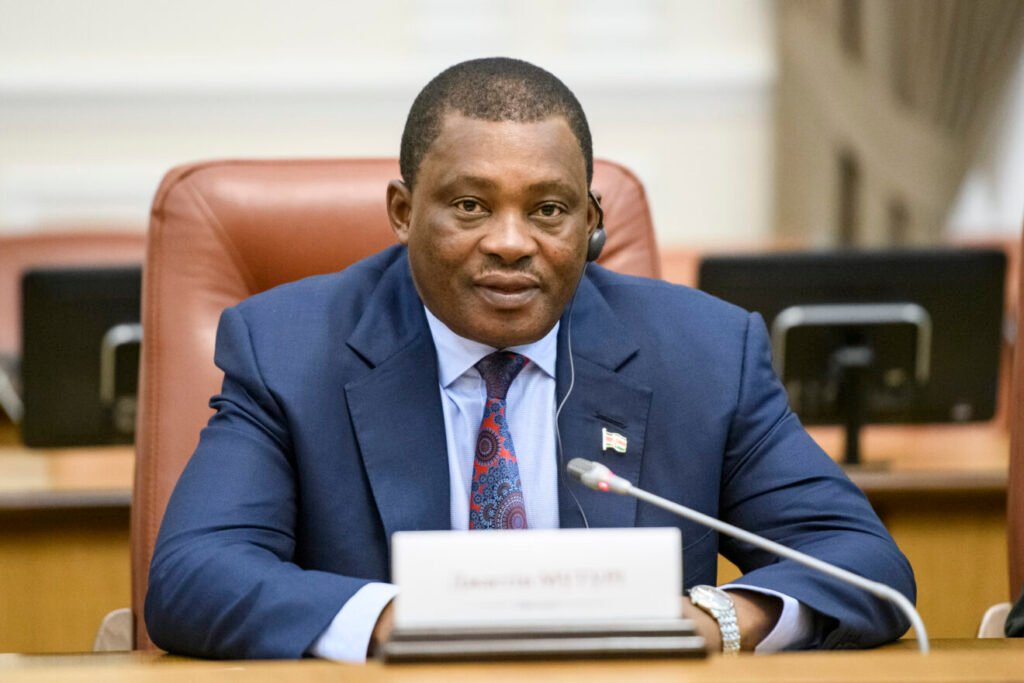NAIROBI, KENYA — President William Ruto’s administration is facing scrutiny over its trend of redeploying senior officials who have been dismissed, fueling accusations that he prefers to “recycle” rather than outright remove those he deems “incompetent.”
The pattern of reassigning fired officials to new positions, rather than completely removing them from government, has become a hallmark of Ruto’s administration. This has led to speculation about the future of Justin Muturi, who was publicly criticized by the President.
During an Iftar dinner at State House, Nairobi, on Tuesday night, President Ruto labeled Justin Muturi as “fairly incompetent” during his tenure as Attorney General.
“I had a problem with the AG who was there before—he was fairly incompetent. But now, I have a very competent lady in the position, and I can assure you that the issues of Waqf will be sorted out within months,” Ruto stated, addressing Muslim leaders’ concerns about delays in establishing an endowment fund.
This public rebuke has raised questions: if Muturi was considered “fairly incompetent” as Attorney General, why was he subsequently appointed Cabinet Secretary for Public Service? And, should he be removed from his current role, will he follow the established trend of being reassigned?

The precedent for such redeployments is clear. In recent government changes, former ICT Principal Secretary Edward Kisiang’ani was moved to the President’s bureau of advisors as a senior advisor and member of the President’s Council of Economic Advisors.
This followed similar moves for former ICT and Digital Economy CS Eliud Owalo and former Public Service, Performance, and Delivery Management CS Moses Kuria, who were both appointed presidential advisors after being dismissed as cabinet secretaries.
When President Ruto dissolved his entire cabinet on July 11, 2024, amidst Gen Z-led protests, he explained his subsequent reappointments by stating, “I have seen many people ask me why did you dismiss the whole cabinet and then you hire some back. Let me answer it this way, it was necessary to have a fresh start because I told the people of Kenya, we are going to have a broad-based government and a fresh start…,” Ruto said on July 29, 2024.
Nearly half of the dismissed cabinet secretaries were reappointed. Some, like former Health CS Susan Nakhumicha, were later nominated for other high level positions, in her case, as the new Kenyan permanent representative to the UN-Habitat in Nairobi.
Other examples include former Cabinet Secretary for Agriculture and Livestock Development Andrew Karanja, now Kenya’s ambassador to Brazil, and former Gender CS Aisha Jumwa, appointed chairperson of the Kenya Roads Board, a move that drew criticism from the Institution of Engineers of Kenya (IEK) due to her lack of engineering background.
Former ICT CS Margaret Nyambura Ndungu declined an ambassadorial posting to Accra, Ghana.
President Ruto has also publicly lamented the “incompetence and cluelessness” of some of his Cabinet Secretaries and Principal Secretaries during performance contract signings at State House.
“You are the PS or the minister and you don’t have information—how do you run a ministry, a department, or a parastatal if you have no information? That is the highest level of incompetence,” Ruto stated at the time.
And as another cabinet reshuffle looms, the train with its compartments rumbles on.

